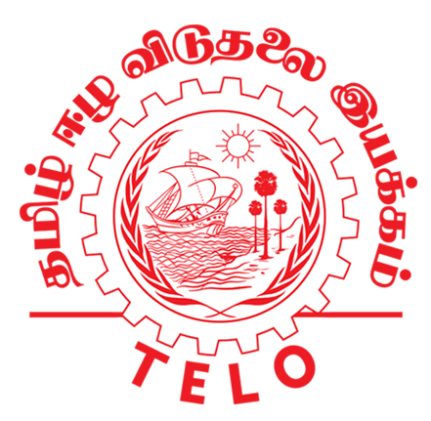Sri Lanka is to venture into deep space exploration through the collaboration between a Sri Lankan company and China’s Deep Space Exploration Laboratory (DSEL).
Supreme Deep Space (Pvt) Ltd. and China’s Deep Space Exploration Laboratory (DSEL) have outlined several areas of collaboration to advance space exploration and technology. This partnership promises to leverage Sri Lanka’s unique expertise and China’s advanced capabilities in various research initiatives.
The partnership not only places Sri Lanka on the global space exploration map but also allows the nation to contribute significantly to groundbreaking scientific endeavors.
The timing of this partnership is particularly noteworthy given the current global landscape of space exploration. The United States’ Artemis program is set to compete with China’s lunar ambitions, aiming to land astronauts on the Moon by 2026 and establish a sustainable presence there. Both nations are seeking international collaborators, and Sri Lanka’s cooperation with China may suggest a strategic alignment, although the primary focus remains on the scientific and technological advancements this partnership will bring.
In the wake of China’s highly successful Chang’e 6 lunar mission, the visit of Professor Wu Weiren, Chief Designer of China’s Lunar Exploration Program, to Sri Lanka sparked considerable intrigue and excitement.
China’s Chang’e 6 mission, launched on May 3, 2024, marks a monumental achievement in space exploration. The mission successfully landed on the far side of the Moon in the South Pole-Aitken Basin, a region that holds significant scientific interest due to its ancient impact history. Chang’e 6 aims to return approximately 2 kilograms of lunar samples to Earth, providing unprecedented insights into the Moon’s composition and geological history.
Professor Wu Weiren’s visit underscores the strategic importance of this collaboration. The establishment of Supreme Deep Space is a testament to the visionary approach of leveraging Sri Lankan expertise in space science and technology. This initiative is poised to inspire a new generation of scientists and engineers in Sri Lanka, fostering a culture of innovation and exploration.
Supreme Deep Space will create a comprehensive database to catalog local expertise relevant to space missions. This database will include scientists, engineers, and researchers with specialized knowledge in areas such as astrophysics, materials science, and space mission logistics. This initiative aims to streamline collaboration and ensure that the best minds in Sri Lanka are contributing to global space missions.
A key area of cooperation is joint research on 3D printing technologies for construction. This research will focus on developing methods for building structures on the Moon using lunar regolith, which could significantly reduce the cost and complexity of establishing lunar bases. By combining DSEL’s advanced 3D printing technologies with Sri Lankan innovations, the partnership seeks to pioneer new techniques for off-Earth construction.
Another exciting collaboration involves joint research on breaking down H2O to generate oxygen. With the potential discovery of water ice at the Moon’s poles, this research could provide critical life support resources for future lunar missions. The project will explore efficient methods to electrolyze water, harnessing solar power to produce oxygen and hydrogen, essential for sustaining human presence on the Moon.
The partnership also aims to investigate the feasibility of a space elevator using graphene, a material known for its incredible strength and conductivity. This ambitious concept involves creating a tethered structure from the Earth’s surface to a geostationary orbit, enabling cost-effective transport of materials and personnel into space. Joint research will focus on developing graphene production techniques and testing its application in space elevator technology.
Supreme Deep Space and DSEL will conduct joint research on the lower gravity impact scenario, taking advantage of Sri Lanka’s Hikkaduwa region. This area, with its unique geological features, provides an ideal environment for studying the effects of reduced gravity on various materials and biological systems. The findings could offer valuable insights into how different substances and organisms might behave in lunar or Martian conditions.
The collaboration extends to Tracking, Telemetry, and Command (TT&C) services, ground segment support, and IT resource sharing. Supreme Deep Space will provide critical infrastructure for mission monitoring and control, leveraging Sri Lanka’s strategic geographic position. This support will ensure seamless communication and data exchange between Earth-based stations and spacecraft, enhancing the overall efficiency and safety of space missions.
Finally, Supreme Deep Space will play a pivotal role in mission monitoring and control. By establishing state-of-the-art facilities equipped with advanced technologies, the company will support DSEL’s missions in real-time. This includes tracking spacecraft, analyzing mission data, and coordinating with international space agencies to ensure the success of collaborative space endeavors.
These areas of cooperation between Supreme Deep Space and DSEL mark a significant step forward for Sri Lanka in the global space community. By harnessing local expertise and contributing to cutting-edge research, Sri Lanka is poised to become a key player in deep space exploration, driving innovation and scientific discovery for the benefit of humanity.
With missions like Chang’e 7 and 8 on the horizon, aimed at exploring the Moon’s south pole and establishing a lunar research station, Sri Lanka stands to benefit immensely from its association with DSEL. These missions align with the broader objectives of Supreme Deep Space, paving the way for Sri Lanka to become an integral part of international space missions.





